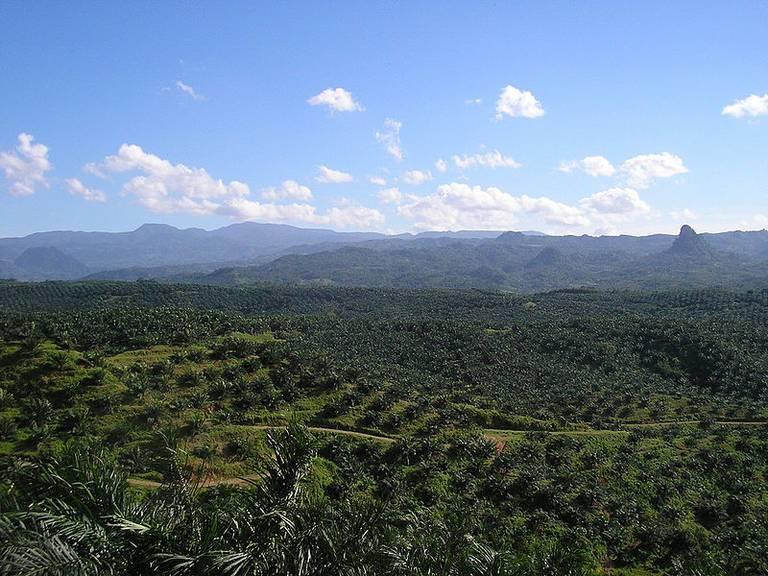
According to the NGOs Greenpeace and Environmental Investigation Agency (EIA) the global banking giant HSBC has launched an investigation of Indonesia’s Noble Plantations over allegations that the company has been ready to clear cut thousands of hectares of rainforests in the remote province of Papua.
HSBC’s inquiry was triggered by complaints from Greenpeace and EIA, which presented the bank, as well as Rabobank, ABN Amro and ING, evidence that Noble was preparing to clear 18,000 hectares (69.5 square miles) of rainforest. That area primed in order to transform that land into palm oil plantations is about the same size as Washington, D.C. In the meantime, the global sustainable palm oil industry group, the Roundtable for Sustainable Palm Oil (RSPO), has reportedly ordered Noble to stop any development of its land concessions until HSBC’s investigation is complete.
EIA says this is the first time a major financial institution has requested that the RSPO investigate one of its own clients. Along with the three other banks, HSBC had contributed to the formation of a $750 million bond issue for Noble.
HSBC’s ties to Noble and other companies within the global palm oil supply chain had subjected the bank to criticism from Greenpeace, EIA and other environmental groups. Earlier this year, Greenpeace accused HSBC of funding “forest destruction” due to its lending of millions of dollars to Noble, Salim Group and other palm oil producers and suppliers. After Greenpeace publicly released evidence, including videos, which documented the destruction and development of rain forests, HSBC and other banks declared earlier this year that they would enact far more stringent “no deforestation” lending policies.
That shift made HBSC’s declarations more consistent with the “no deforestation, no peat and no exploitation” NDPE policies that have become more commonplace within the global palm oil sector. Greenpeace welcomed the change in policies, one of which was HSBC’s insistence that all of the bank’s customers publish their individual forest protection policies by the end of last month.
Greenpeace’s take on these policies is that such commitments are critical as the rate of deforestation in Indonesia has overtaken that of Brazil’s. Meanwhile, Brazil’s agricultural sector has shown interest in becoming a more prominent global palm oil producer. Environmental groups in turn have warned that the political climate in Brazil has helped accelerate the rate of deforestation in country, with the growth of palm oil only promising more pressure on the country’s declining forest cover.
HSBC’s announcement that it will investigate one of its own clients sends yet another message to wayward palm oil companies: continued deforestation, and any concurrent human rights violations exacted on local communities, will only impose more long-term risk to their business. Last month, a huge supply of palm oil sourced by a Korean-owned company was made readily available to global markets – but according to the NGO Mighty Earth, the fact that palm oil had links to deforestation in Papua meant that there were no takers, as food and personal care companies are becoming more serious about stopping deforestation within their supply chains.
Image credit: Achmad Rabin Taim/Wiki Commons

Leon Kaye has written for 3p since 2010 and become executive editor in 2018. His previous work includes writing for the Guardian as well as other online and print publications. In addition, he's worked in sales executive roles within technology and financial research companies, as well as for a public relations firm, for which he consulted with one of the globe’s leading sustainability initiatives. Currently living in Central California, he’s traveled to 70-plus countries and has lived and worked in South Korea, the United Arab Emirates and Uruguay.
Leon’s an alum of Fresno State, the University of Maryland, Baltimore County and the University of Southern California's Marshall Business School. He enjoys traveling abroad as well as exploring California’s Central Coast and the Sierra Nevadas.














